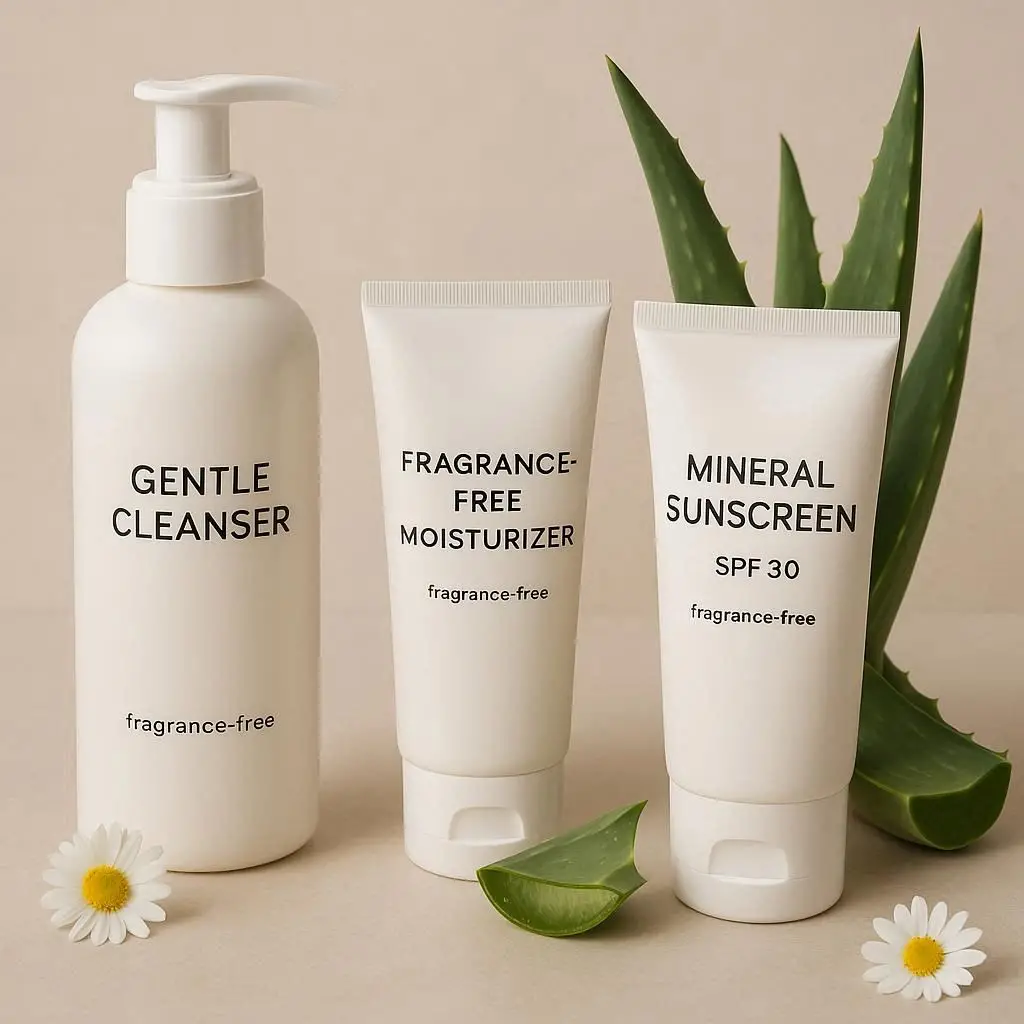Sensitive skin often reacts quickly to products, weather changes, or even stress. Redness, irritation, and dryness are common struggles. Caring for sensitive skin requires a gentle approach focused on calming and protecting, rather than overwhelming it with too many steps or harsh ingredients.
Here’s how to create a safe and soothing routine for sensitive skin.
1. Keep Your Routine Simple
Less is more when it comes to sensitive skin.
- Stick to 3–4 basic steps: cleanse, moisturize, and protect.
- Avoid trying too many new products at once.
- Always patch-test before applying something new to your entire face.
2. Use Gentle Cleansers
Harsh cleansers strip natural oils and worsen irritation.
- Choose cream, milk, or micellar water cleansers.
- Avoid sulfates, strong fragrances, and alcohol-based products.
- Wash with lukewarm water — hot water can increase redness.
3. Moisturize to Strengthen the Skin Barrier
Sensitive skin often has a weakened barrier, making it prone to irritation.
- Look for ceramides, hyaluronic acid, and squalane.
- Choose fragrance-free, hypoallergenic formulas.
- Apply twice daily to keep skin hydrated and calm.
4. Be Careful with Exfoliation
Over-exfoliating is one of the biggest triggers for sensitivity.
- Avoid harsh scrubs and high-strength chemical peels.
- If exfoliating, use lactic acid or PHA once every 1–2 weeks.
- Focus on hydration more than exfoliation.
5. Protect with Sunscreen
Sensitive skin is often more vulnerable to sun damage.
- Use mineral sunscreens (zinc oxide or titanium dioxide), which are gentler than chemical formulas.
- Choose SPF 30 or higher, fragrance-free, and suitable for sensitive skin.
6. Ingredients to Avoid
Certain ingredients are more likely to trigger reactions.
- Strong fragrances and essential oils
- High concentrations of alcohol
- Harsh acids or strong retinoids
- Menthol and peppermint
7. Soothing Ingredients to Embrace
Instead of aggressive treatments, choose calming ingredients:
- Aloe vera → hydrates and soothes
- Oat extract → calms redness and irritation
- Chamomile → reduces sensitivity
- Niacinamide (in low concentrations) → strengthens the skin barrier
8. Lifestyle Habits That Help Sensitive Skin
- Avoid sudden changes in temperature (hot showers, very cold air).
- Wear breathable, soft fabrics.
- Manage stress, as it can trigger flare-ups.
- Keep skincare and makeup brushes clean to reduce bacteria exposure.
Final Thoughts: Gentle Care, Strong Skin
Sensitive skin requires patience and care. By choosing gentle, fragrance-free products and focusing on hydration and protection, you’ll help your skin stay balanced and calm.
Consistency and simplicity are your best friends when it comes to maintaining comfort and reducing irritation.








